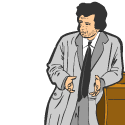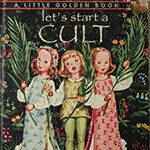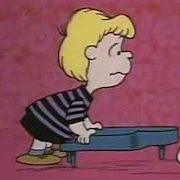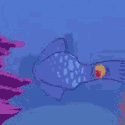|
I think Graham Fitch is a good source for online piano howto stuff - http://www.practisingthepiano.com/ I would recommend staying away from C Chang who made that "fundamentals of piano practice" book that gets thrown around a lot online - the stuff he's right about in it is already common knowledge better dealt with by other people, and his own contributions (and thoughts on music in general) are frequently outright wrong, or dubious at best (claiming an improvement of 1000x by following what's in the book for example).
|
|
|
|

|
| # ? Jun 10, 2024 18:48 |
|
SSH IT ZOMBIE posted:Been taking 3 months of lessons at the suggestion of this thread. It's been 3 months, stop stressing. I'm not sure how a phone app is gonna help btw, because you want to wire your brain to put your fingers on the correct key when you see a note, not say what the note is? The only true way to learn how to sight read is to sight read, imo. What I would do is pick up these two books: 'Bach: Inventions' and 'Bartok - Songs for Children'. The former will teach you how to read staves independently at the same time and the latter will teach you to see the 'shape' rather than separate notes. You should do a different page from Bartok every day. They are simple but really lovely melodies and you'll extract a lot of pleasure from them - but more importantly you'll be learning to read without it seeming like an exercise. With Bach, you should choose one of the 'easier' inventions (1, 4, 8) and just do a bar or two a day. Anyway I'm not master at sight reading but I'm okay at it and this is what I did. Bartok was especially useful to me. Edit: more on the 'shape' - I don't know if this is the same for other people but when i'm sight reading if I'm having to think about where things are its the intervals - the gap between one note and another - I'm not thinking 'the next note is F' or anything like that. This might be really obvious though,.. opus111 fucked around with this message at 07:39 on May 27, 2015 |
|
|
|
Katana Gomai posted:My girlfriend told me that she is going to buy herself a digital piano and I would like to buy her a newbie book as one of her birthday gifts. She has some limited experience with the instrument from her teenage years but she's pretty much a complete beginner again now. The OP of this thread doesn't really recommend anything except for the jazz piano book and while that is certainly something that would be up her alley, it seems that the book is absolutely not for beginners. Lessons would be worth so much more imo, and also its saying you have faith in her to keep up with it, right?!
|
|
|
|
megalodong posted:I think Graham Fitch is a good source for online piano howto stuff - http://www.practisingthepiano.com/ TRIGGERED! I can't stand that ebook he wrote. It's all about treating the piano like its some sort of sprint to mastery. It strips away all the joy of playing and hammers you with guilt if you even THINK about playing for the sake of playing. I think its a really harmful publication.
|
|
|
|
opus111 posted:TRIGGERED! Fitch? I've not actually seen the ebook, i was just going off his articles on the site.
|
|
|
|
megalodong posted:Fitch? C. Chang.
|
|
|
|
opus111 posted:C. Chang. ah good, good. Was gonna say I agree with every else you've posted thus far so i would have been interested in hearing what you though was wrong with Fitch.
|
|
|
|

|
|
|
|
opus111 posted:It's been 3 months, stop stressing. I'm not sure how a phone app is gonna help btw, because you want to wire your brain to put your fingers on the correct key when you see a note, not say what the note is? Do you have links for those books so I can see which ones you mean exactly?
|
|
|
|
As a beginner adult student I also recommend that Alfred book that was linked earlier. It's the one I'm using and I feel like I"m making good progress and enjoying the process. Edit: while I'm here, I have a question. I've been learning for about 3 months now using the Alfred book, and I'm about halfway through it. I haven't gotten to scales yet and in fact am just now getting to the section of the book that talks about quarter notes and starts to build finger strength/independence through some drills. I don't really have a problem staying motivated to practice every day, but I would enjoy it if I could work on a particular piece of music that I actually want to learn instead of such riveting works as "Alpine Melody" and "Happy Birthday". Is it too soon for me to start working on one of the dumbed-down classical pieces for beginners/kids (from a book like this) for 10-20 mins/day after my regular practice? Or will that just gently caress me up? Sub Par fucked around with this message at 17:23 on May 27, 2015 |
|
|
|
My personal hell: trying to play in winter with cold hands.Sub Par posted:As a beginner adult student I also recommend that Alfred book that was linked earlier. It's the one I'm using and I feel like I"m making good progress and enjoying the process. It wouldn't hurt or anything. The only thing to be careful of is with stuff like Hanon or the varvious etudes - it's not that they're dangerous, but if you play them badly it could cause injuries. Like with Chopin's op 10. no 1, where the technique to be practiced is the flexing and contracting of the hand (like a snake, said someone who saw Chopin play it), it's easy to do it badly and instead try to play the whole thing with huge stretches of the hand, which will rapidly cause you some nasty pain. Of course that's years off for you, but the idea is still solid. e: I tried to find something to show why people shouldn't use Chang's book, because it's pretty dumb to just say "don't use it" and I remember this was one of my favourite wtf things: (FFP means flat finger position - he loves to turn everything into an acronym) quote:In order to demonstrate the complexity of the curled position, try the following experiment. First, stretch the forefinger of your RH out straight (FFP) and wiggle it up and down rapidly as you would when playing the piano. Now, keep this wiggling motion and gradually curl the finger in as far as you can. You will find that, as you curl the finger, it becomes more difficult to wiggle the finger tip until it becomes impossible when completely curled. I have named this phenomenon “curl paralysis”. If you do succeed in moving the finger tip, you can only do it very slowly compared to the straight position because you need to use a whole new set of muscles. In fact, the easiest way to move the finger tip rapidly in the completely curled position is to move the entire hand. Therefore, with the curled position, you need more skill to play at the same speed compared to the FFP. It shows such an utter misunderstanding of how you actually play the piano I don't even know where to start with it... It's like he has this image of a million pianists all scrunching their fingers up and futilely scratching at the keys with sad expressions on their faces. megalodong fucked around with this message at 05:14 on May 28, 2015 |
|
|
|
Sub Par posted:As a beginner adult student I also recommend that Alfred book that was linked earlier. It's the one I'm using and I feel like I"m making good progress and enjoying the process. this series is quite good, there's a selection of pieces from each era. what makes it cool is they're not arranged by the publisher, they're just written for beginning players. sounds like they're probably a little ways off but it shouldn't be too much longer before you could start on it
|
|
|
|
Great thread. Slowly working through it. I've been wanting to play in a band with keys and, at the same time, I've been getting really tired of hauling 12 metric tons of drum gear to every show. So I picked up a Yamaha P115 today and have started brushing up. I'm also planning to find a teacher and actually learn the correct way to play. Might as well actually become a better player while working on the standard bar band/juke joint fare.
|
|
|
|
Great suggestions for sight reading! I'll have to pick up the bartok book since I need to work a lot on sight reading. Do you guys also have any recommendations for rhythmic exercises? I worked it out but it took about 45 minutes to an hour for me to figure out how to play Solar correctly without a metronome. I used to be able to hear 1234 in my head, but I couldn't in solar and it's because there was a lot of: (1+2+3+4) +- + 2 + 3 - - +- + 2 + 3 - - + going on. Syncopation starting on 4+. It killed me, it's a 4/4 song.. I think sight reading and rhythmic work will fix that.
|
|
|
|
Rhythmic intuition is nothing more than practice practice practice. Keeping a mental count like that is most certainly a good idea; I'd even try counting sections out loud as you play them (note this can actually be difficult due to split concentration). Rather than hunting specific rhythmic reading for practice (could try drum rudimentary books for example), just read random pieces of music and focus only on the rhythm rather than the actual notes. See if that helps get you more familiar with the notes.
|
|
|
|
My instructor has me following a sight reading exercise book that has rhythmic exercises. They are just counting and clapping rhythms. Feels childish and silly but it works IMO.
|
|
|
|
its also good in that it brings the blood to your hands but year it feels ridiculous. one of my teachers always used to try and get me to sing, too. gently caress that, if i could sing i wouldn't need an instrument to make sounds for me!
|
|
|
|
My instructor mercifully lets me skip the singing exercises, although I do find them useful sometimes. The books I'm following are the Royal Conservatory Four Star sight reading series: http://www.amazon.ca/Four-Star-Sigh...r+sight+reading They are mostly contrived and pretty non-musical (although each set ends with an actual piece), but they are very well structured IMO. It's broken up into sets of daily exercises, with each day broken up into sight reading and rhythm exercises that take maybe 5-10 minutes to do. Most of the exercises ask you to focus on a particular element; for example the level two book starts with simple things like spotting the 3rd in a passage or the triad and move up to 6ths, 7ths and inversions in different keys (typically just C/G/D/F at this level).
|
|
|
|
I sing solfège (badly) and count along enthusiastically if it helps because when you're learning something as mind-boggling difficult as piano you really can't worry about not looking cool during lessons. There is plenty of time to look cool afterwards to make up for the dorky stuff you do during practice 
|
|
|
|
Singing is incredibly useful as a teaching tool even if it's not really your thing because it's really the only way to see if you are actually translating the music you read into sounds in your head (which is what you're supposed to be doing) or if you are just connecting note on paper to key on piano (which is what beginners do). If you find yourself at a late beginner/early intermediate reading and/or playing level and you feel you have hit a wall, try singing your music while you play.
|
|
|
|
My first public performance was on Tuesday, it went well. So well that one of the people in the audience even got my contact information and recommended me for another thing that was happening tonight. I was going to play the same pieces as I did on Tuesday. It was a disaster. I played the first piece (Metamorphosis 2) perfectly, and then forget everything halfway through Metamorphosis 4. I stopped and said "sorry only the first part tonight," bowed and sat back down. It was crushing. I stayed for everyone else and there were some great musicians but of course there was the terrible feeling the whole time. Now I'm back home and my head is just a mess. I played the song dozens of time this week, and never, not even once, did I forget everything the way that I did on stage there. I don't even feel like looking at my piano right now. I sent a message to my tutor but haven't heard back yet, it's Saturday night so she's doing other things. I really just feel like I need to talk to someone who will understand so I'm writing this post. The moment of the gently caress up just keeps going through my head over and over again and I'll probably dream about it tonight. It was my second time on stage, only some days after my first. Maybe it was just too much too fast (even though I was supposed to play the same loving pieces that I did the first time.) I can't explain it and I hope I don't drive myself crazy trying to.
|
|
|
|
I suspect you're one of the few people who still remembers even, just chill.
|
|
|
|
Also there was an ant on the keys and I think he distracted me a bit
|
|
|
|
baw posted:I sent a message to my tutor but haven't heard back yet, it's Saturday night so she's doing other things. I really just feel like I need to talk to someone who will understand so I'm writing this post. The moment of the gently caress up just keeps going through my head over and over again and I'll probably dream about it tonight. Don't do this. It doesn't help anything. I can't count the number of times I've been in a competition (not piano) that required a high degree of skill and concentration that I just completely blew. Maybe you need to gently caress up a few more times for it not to matter as much, but it's not something you should dwell over. There isn't a single person who hasn't experienced it. edit: except for giant loving pussies who will never put themselves out there for any degree of scrutiny. Going out on stage takes a lot of nerve and a lot of balls. The fact that you did it says a lot about you and don't let anyone tell you otherwise. take it on the chin. practice, and make the next performance make up for the first.
|
|
|
|
I wish there was a way to practice loving up a performance without having to gently caress up a performance
|
|
|
|
I just recently finished performing in my second recital a week ago and I had a blow up too. Actually, in both my recitals (my first recital was only two week prior to this latest one where I played the same pieces), I pretty much messed up in the same places. During my first recital, I was so nervous my left hand was shaking so badly I could hardly play the middle section of my first piece Schumann's Wild Horseman (that and my tempo was way too fast). My second recital went way better than my first since I was less nervous, but I actually forgot how to play the 2nd movement of Clementi's Sonatina No.1 and had to restart 3 times before fumbling my way through the beginning of the 2nd movement just to complete it, I was about to skip to the 3rd movement before it came back to me. I guess what I'm trying to say is that everyone screws up a performance and it definitely takes awhile to get used to the pressure and anxiety, especially if you haven't performed solo before; I personally haven't had a solo musical performance ever since I quit piano originally 15 years ago. Performing by yourself is definitely a different beast than performing with a group. I was pretty bummed that I screwed up pretty badly on some of my pieces during my recitals, but ultimately I'm actually pretty satisfied with the work that I put into preparing for them. There's going to be more performances in the future which I know I can do better on, hopefully you'll feel the same way too.
|
|
|
|
baw posted:I wish there was a way to practice loving up a performance without having to gently caress up a performance Go do an open mic or karaoke or something. Or give a public speech. Or teach a class on something. It's not really about piano playing, it's about learning to perform. It's about learning how to separate your muscle memory from your conscious thoughts so that even if you do have a random intrusive thought you can still continue. It's all the same lovely feeling though, loving up in front of others  I guess the good news is you only have to go on this journey once. You won't easily forget how to perform once you get the hang of it. I guess the good news is you only have to go on this journey once. You won't easily forget how to perform once you get the hang of it.
|
|
|
|
Linda Apple Monson gave a little talk about overcoming stage fright, you may or may not feel that her advice applies to you: https://www.youtube.com/watch?v=sN7gTSKUxm0
|
|
|
|
I've taught before and given speeches and danced a lot in front of people without a problem, and the few times I've played piano in public usually went well. I've played a few pianos in public places, in train stations or other public places where the municipality sets up a piano. A city near us has a thing this summer where they have pianos scattered throughout the city for people to play on and I've done that a few times too. There was just something about that last time that made everything drop out of my head. Maybe it was the ant even though I felt like there was some extra layer of anxiety beforehand that wasn't there earlier in the week. The Monson video is nice, and the selfishness is a good way to think about it. It is ego that leads to anxiety. On the other hand, since you are the one who is giving the gift to this audience you really don't want to gently caress up the gift so the pressure is still there. The second part after she played was more helpful because hell I still played the first part and more than half of the second before it fell apart. I still shared something with the audience, even the abrupt stop. I still bowed, they still clapped and thanked me afterwards. It was still a communication. She also talked about the preparation and while I had weeks to plan for the first venue, for the second one I showed up to the venue a day after I found out, hammered out my two pieces in front of the maestro and he slotted me into the program and I was playing 40 minutes later. And as opus pointed out, I am probably the only one who remembers that it happened at this point. My tutor echoed a lot of what you all have said, especially about how this sort of poo poo happens and the only way to get past it is to practice in front of people. It was a bad night and I felt like poo poo but a few days of thinking and playing and now all I'm concerned with is moving on and going back to working on the other pieces instead of practicing the same ones over and over. Avanti baw fucked around with this message at 13:34 on Jun 22, 2015 |
|
|
|
my teacher has been pushing me to do scales in 3rds, 6ths, and 10ths this summer. it's fun, you should give it a try if you know all your scales and haven't been doing this already. also in octaves
|
|
|
|
Did a recital a few days ago! Played some Liszt: https://www.youtube.com/watch?v=KrdGijFJPyA Some Mozart, too (great stuff): https://www.youtube.com/watch?v=rdwriBqzkak
|
|
|
|
IT BURNS posted:Did a recital a few days ago! Nice stuff  Mozart sounded great but I dunno the liszt at all. Mozart sounded great but I dunno the liszt at all.You in a conservatory?
|
|
|
|
What does it mean when a lead sheet says "waltz in one"?
|
|
|
|
it should be played fast; with a 'one in the bar' feel.
|
|
|
|
Re: baw, someone who puts themselves out there and mucks it up occasionally is still a proud member of the 0.1% of people who have ever had the guts to put themselves out there. There are a lot of catchy famous quotes about perseverance and success but what it boils down to is that the true test of someone's mettle is not how whether they succeed but what they do after everything falls to poo poo. It takes a special type of person to swallow their pride and get back on that horse and no matter how much it sucks at the time I don't think you should ever stop trying to be that person. Try to accept that if you go out and try for stuff you're going to wind up failing a significant percentage of the time, but that is absolutely no reason not to keep trying. fake edit: If you want a greater sense of scope, read a summary of the life story of Mithridates VI (or a whole book if you're into history). The bloke has a rap sheet that would put any Nike spokesperson to shame. Sulla Faex fucked around with this message at 16:18 on Jul 5, 2015 |
|
|
|
|
Don't worry about loving up. No one cares. Well people who pay £50 to come see you at a concert hall might but you can worry about that when you're a big shot. Case in point I was playing one on of the public pianos in st pancras station this morning while waiting for a train and totally hosed up and couldn't remember something I've been playing for years half way through. I just shurgged and started into something else. No one watching cared. Heck most people probably don't even know how a piece is supposed to end and wont even know you just stopped unless you tell them! (Depending on audience). Also record yourself constantly. Always and forever never be not recording and listening back.
|
|
|
|
My parents just inherited a piano (grandfather was concert pianist and music professor). I figure this is as good a time as any to starting picking it back up. I have access to the piano and free lessons (though my mom, who is extremely high level, but doesn't really have much teaching experience) only on weekends, as it's a bit of a trip for a weekday. I played though ~elementary school, best thing I can still play is maple leaf rag (only the first half really). Don't really have goals, but I suppose I want to be able to sit down at a public piano and have random people pause and listen. What should I do, pick some goals and focus on them? Just ask my mom to teach me basics and see where it goes for a while? Pick a random song and grind on it?
|
|
|
|
What's the best database for MIDI files? I want to use them in Synthesia.
|
|
|
|

|
| # ? Jun 10, 2024 18:48 |
|
Couple of hours from now (8pm argentina time), Martha Argerich and David Barenboim are being streamed at http://teatrocolon.org.ar/es/en-vivo , playing Beethoven's 2nd piano concerto and Tchaikovsky's 4th symphony.
|
|
|




























